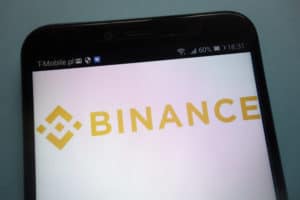2018-11-20 01:38 |
There are plenty of individuals out there in the blockchain space, specifically analysts and experts in the field that believe that any kind of crypto-based adoption and integration into business and daily life will only be possible with the work of major multinational corporations.
What needs to happen exactly? They first need to hitch themselves to the blockchain wagon, metaphorically speaking, and from there, we'll see some magic happen.
So how far are we away from seeing that sort of scenario happen? Not far at all for those that are keeping a more astute eye on what some of the world's largest companies are up to at this moment in time. Interestingly enough, even while there are companies like Facebook (those in glass houses), Google and Mastercard openly disparage cryptos, they're still moving headlong towards its application.
For example, even while it has been a staunch opponent of cryptocurrencies for some time, the Bank of America has already secured almost 50 blockchain based patents. An interesting way for the international bank to hedge its bets right?
Catherine Bessant, the Chief Technology Officer for the Bank of America made it plain as to the stance that the company wanted to take during an interview with Fortune back in January 2018:
“We’ve got just under 50 patents in the blockchain/distributed ledger space. While we’ve not found large-scale opportunities, we want to be ahead of it, we want to be prepared.”
Now we shouldn't be too quick to think that they're some kind of unique exception to an otherwise anti-cryptocurrency rule among large-scale companies; because they're not the only ones to do this.
These same companies may not be the biggest fans of the technology by a country mile, but they're certainly willing to suspend their disbelief when it comes to its future as a truly game-changing innovation. And when it comes to game changes, they simply cannot avoid being the late adopters.
2018 Ranking of Global Blockchain Patent EnterpriseWith September, we saw the official release of the 2018 edition of the Global Blockchain Patent Enterprise Ranking. And with its release came the unearthing of some pretty interesting data.
What it showcased was that some of the largest companies in the world have already secured a large number of blockchain patents. The list includes the likes of Alibaba, Google, Mastercard, Visa, Sony, IBM, Nasdaq, Microsoft, Facebook, and Paypal. This is just a small number listed of those companies that have already put themselves ahead of the curve when it comes to blockchain related patents.
The report also consists of the top 20 companies based out of China which boast a record number of blockchain patents. The number one ranked company out of them being Alibaba, which gained a reputation as the ‘Chinese Amazon.'
So, why don't we go ahead and explore the origins behind these blockchain patents which are held by some of the world's mega, multinational companies. What precisely they have them in their repertoire for, and what possible end-game uses they have for their uses of blockchain technology.
Let’s explore the exact nature of these blockchain patents held by the world’s mega-companies. And what possibly end-game uses do they have for their use of blockchain technology.
Alibaba Total Blockchain Patents: 90In total, Alibaba has been responsible for a grand total of 90 patents, with 2017 being a particularly interesting year for it as a company. In 2017 alone, there were over 406 patents that were applied for, with Alibaba constituting 10% of them.
According to the CEO of Alibaba's financial sister-company, Ant Financial, Jin Xiandone went pretty far in his assumption of Alibaba's position as a acquisition force for blockchain patents:
“We are the most patented company in the world of blockchain technology.”
It's at this point in time that Alibaba has used their blockchain patents in a number of unique ways; from tracking cross-border shipments between companies / countries, securing vital medical data, and even getting it involved in the fight against food fraud.
Out of all the patents that Alibaba has been involved in acquiring, the majority of them revolved around design and utility. One of the most important and prominent patents that they became involved with was the Ant Financial Blockchain 2.0. This sort of blockchain operates . as an open platform which focuses on self-operation and decentralization.
At this point, Alibaba has used their blockchain patents in a number of ways such as tracking cross-border shipments, securing medical data and even for fighting against food fraud.
The vast majority of Alibaba’s blockchain patents revolve around design and utility. One of their most prominent patents is the Ant Financial Blockchain 2.0. It’s an open platform that focuses on self-operation and decentralization.
Out of the major multinational companies, Alibaba specifically appears to be leading the way for innovative applications of blockchain solutions and is collaborating with a wide range of companies to further their blockchain developments.
IBM Blockchain Patents: 89Standing there right next to Alibaba with over 89 separate blockchain patents is the American company IBM. In July alone, the company acquired six patents which were related to possible blockchain capabilities. Out of them, the single most interesting acquisition it was involved in was from July, and is known as Patent 1: 20180198630.
This patent is directly related to blockchain transactions that can preserve individual privacy. The patent itself would enable IBM to complete confidential transactions with the help of Smart Contracts.
Along with this patent, IBM has also been working to fill in patents for innovations in areas such as tracking medical items which could optimize patient safety within the hospital environment.
At this moment in time, IBM stands at the forefront when it comes to obtaining blockchain-based patents, most of which are centered around system-based innovations and facilitate smoother blockchain operations. much as we would come to expect from one of the world's largest tech companies.
MasterCard Blockchain Patents: 80Out of these companies, MasterCard is another one which has managed to take on a large number and variety of blockchain patents. These, much as we would come to expect from a financial-oriented company, revolve more around blockchain as it pertains to payment transactions.
The credit card behemoth filed for a patent back in July that would encode an image of your payment card onto the blockchain. From a theoretical standpoint, this would then allow you to pay for anything with your card in a store, all without actually having your card to hand over.
Another patent would allow Mastercard users to upload their travel itineraries to a blockchain, allowing shops and vendors the chance to bid for your business.
Another one of these patents aims to partition a blockchain, allowing it to handle and store multiple different types of transactions.
Overall, Mastercard isn't taking the slow and steady approach when it comes to getting hold of new patents either. Just recently, the company applied for a new patent which could theoretically be responsible for the launch of a fractional reserve banking system within the crypto world.
So, when the time comes for MasterCard to dive headlong into the world of crypto based transactions, they will be thoroughly ready to carve out a significant slice of the payments market pie (sort of speak).
Microsoft Blockchain Patents: 20Now we get onto the subject of mega-companies and their relationship with blockchain technology. And out of them, few of them have the scale or influence to compare to that of Microsoft. Earlier in 2018, the company filed for two blockchain based patents that shows the company is on the hunt for using it as a possible feature within enhanced Trusted Execution Environments (TEE).
To give it context, a TEE is a secure area of the main processor. It's easy . to get bogged down by any of the possible technical jargon which can follow swiftly behind the acronym.
Breaking it down to understand more clearly, Microsoft may have its eyes on using its recently acquired TEE patent to offer higher levels of security for a mobile operating system or its own cloud system called Azure.
Google Blockchain Patents: 22Now, you would make the assumption that Google, with all the negative press that it's given to blockchain and cryptocurrency over the years, that it isn't in the market for buying into it; but you'd be wrong.
The search engine king has obtained a number of its own blockchain patents in order to ensure that it's not left out of the future proceedings completely.
Google applied for a patent back in June 2018, which was granted in July this year. This patent was US20170177898A1, and aims to provide a long-term solution to data tampering:
“A system, method or computer readable storage medium configured for storing encrypted data on a blockchain. To write additional data in a blockchain, a request is received at a computing node.”
When placed in more simplistic terms, Google wants to use this innovative blockchain system in order to verify any data stored on its database. This will allow it to safeguard the integrity of the information and will flag the information when it is altered or deleted.
In ConclusionOne of the focuses of many of these blockchain patents which were applied for by a range of major multinational companies largely revolves around the process of authenticating existing data and the verification of transactions as and when they happen.
It's rather ironic when you think about it, however, especially when considering such companies as Google and Facebook when they take on such a level of hostility agaisnt crypto and blockchain adoption in the public sphere. This approach is in diametric opposition to its activity behind closed doors. with each of them working secretly and quickly to snap up as many blockchain related patents as possible.
origin »Bitcoin price in Telegram @btc_price_every_hour
High Performance Blockchain (HPB) на Currencies.ru
|
|


























